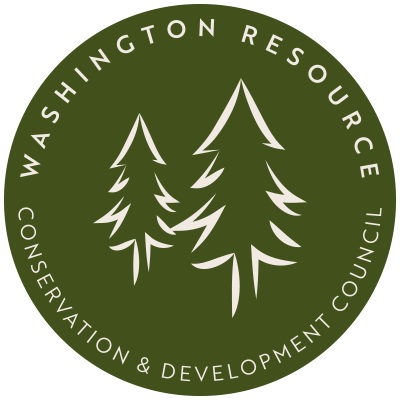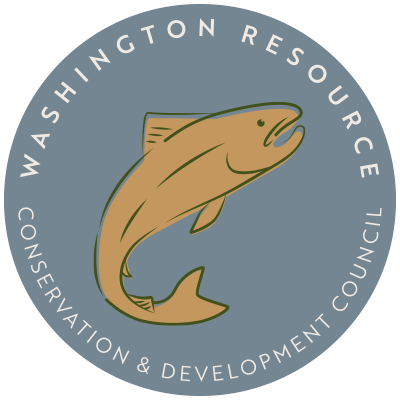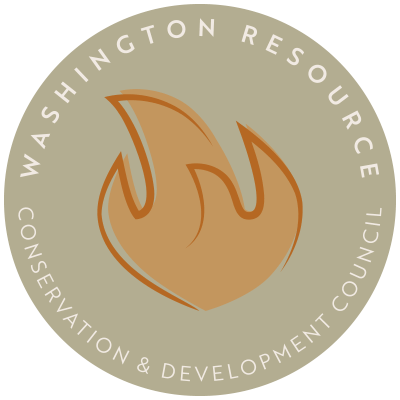
The negative impacts of wildfire are increasing in communities across the US. Our Washington communities are composed of people with diverse identities and circumstances. As a result, the solutions, experiences, and needs of the full range of community members are key to building a future where we can better live with wildfire.
Our current program focus areas are:

Despite significant investment in salmonid habitat restoration efforts, the Yakima River Basin continues to face challenges in restoring native fish populations due to historical declines and ongoing habitat degradation.
Numerous factors, including over a century of commercial harvest, unscreened surface water withdrawals, dam construction, habitat degradation, and non-native species introduction, have contributed to the decline of native salmonid populations in the Yakima River Basin. The Endangered Species Act listings of Columbia River bull trout and Middle Columbia River steelhead underscore the urgent need for comprehensive restoration efforts.
The WRCD facilitates collaboration among stakeholders and coordinates project planning and implementation to ensure efficient and effective restoration efforts. By leveraging funding from the Bonneville Power Administration and fostering partnerships, we work towards the shared goal of revitalizing salmonid habitat in the Yakima River Basin through the Yakima Tributary Access and Habitat Program (YTAHP).

The Community Prescribed Fire program was born out of a long-standing need to return fire to the people and landscapes of Washington. Fire plays an instrumental and necessary role in the ecosystem function of many of our landscapes, but historical fire exclusion and other land management decisions removed fire and, in turn, created conditions that increased fire hazard and vulnerability, threatening communities. The need to restore and live with fire has an all-lands solution, and community leaders, private landowners, and agencies must all come together.
We are empowering communities to take leadership in using prescribed fire as a tool in landscape restoration and wildfire risk reduction. Our goal is to give communities the resources, tools, training, and knowledge needed to implement prescribed burns.
Current program focus is on supporting the development of community-led prescribed fire organizations and collaboratives, providing training and learning opportunities, connecting and convening people, and working through barriers to prescribed fire by engaging in local, state, and federal policy.
As wildfire risks rise across Washington, particularly in the wildland-urban interface (WUI), many communities lack comprehensive strategies to reduce risks, protect infrastructure, and ensure safe evacuations and recovery. Community Wildfire Protection Plans (CWPPs) provide a crucial framework for increasing wildfire resilience, but many communities need more capacity, expertise, and resources to develop effective plans.
WRCD supports communities by providing specialized consultation and assistance in developing and implementing CWPPs, working closely with local leaders and stakeholders to build community-driven wildfire resilience strategies.

Fiscal sponsorship is a mechanism that allows a tax-exempt 501(c)(3) organization (the sponsor) to support another group (the sponsored partner). The WRCD serves as a fiscal sponsor, meaning that we are legally and financially responsible for any sponsored partner. Therefore, it is essential that the Partner organization’s goals align with our mission. As a fiscal sponsor, we offer fiduciary oversight, financial management, and other administrative services to help develop the capacity of the charitable project or group. If a potential Partner’s mission is compatible with ours, we will establish a written agreement with them.
One of the primary purposes of fiscal sponsorship is to allow a sponsored Partner to apply for grants and receive tax-deductible donations. This helps reduce the partner’s expenses, preserve resources, minimize duplication of personnel, and simplify organizational tasks.
When done effectively, fiscal sponsorship serves as a testing ground for new ideas or newly formed nonprofits, utilizing the administrative resources of the sponsor. These new nonprofit entities may opt to apply through fiscal sponsors while awaiting their 501(c)(3) designation from the IRS.
COMPREHENSIVE FISCAL SPONSOR (MODEL A)
This service is provided to an individual or group that is not part of a separate legal business entity. The project is a charitable program of the WRCD. The Program becomes a WRCD program. Any Program personnel become employees and/or volunteers of WRCD. All fundraising is done in WRCD’s name, and the WRCD Board has control over the use of funds. All assets, contributions and liabilities belong to WRCD and are reported solely within the WRCD’s financial statements. This model is often best suited for projects in an “incubator” stage, as The Partner grows funding, programming, and recognition of the program; while reducing The Partner’s liability and limiting IRS challenges of tax-exempt designations of donations. A board resolution may be adopted during the agreement process to address potential or eventual separation from WRCD.
INDEPENDENT CONTRACTOR (MODEL B)
In this model, The Partner is a separate, legal entity. Ownership of The Program, including work-product and other assets, can belong to WRCD, The Partner, or both parties however; WRCD maintains control over the project. Actual operations of The Project are contracted out to The Partner for execution. All fundraising is done in WRCD’s name, contributions belong to WRCD, and WRCD reports funds as contributions in and expenses out. Typically, a Form 1099 will be issued to The Partner to report funds disbursed during the year for inclusion on The Partner’s tax return. Depending on ownership agreements and the nature of The Project, The Partner may be liable for the Project and may be required to carry liability insurance, listing WRCD as a named insured.
PRE-APPROVED GRANT RELATIONSHIP (MODEL C)
The Partner is a separate, legal, non-profit entity. The Partner maintains ownership of The Program, although WRCD retains discretion and control over the use of funds. The Partner goes through a formal grant request process, through which WRCD evaluates The Program’s grant proposal. Once approved, funds are only provided up to the amount of funds received for The Project, at agreed intervals. Often, The Partner has potential funding sources identified. Charitable contributions go to WRCD, who reports funds as contributions in and grants out. The Partner reports grants or income in and expenses out. The Project personnel work for The Partner, who maintains total liability for The Project.
Request a Fiscal Sponsorship application from:
Once received, the WRCD Board of Directors will review the application to determine if the project or partnership is eligible for services. If the applicant is deemed eligible for services, WRCD will determine which service model best fits the partner’s sponsorship needs and, if necessary, request additional information for further consideration.
Develop a fiscal sponsor agreement outlining the terms and conditions of the partnership. Once all language is agreed upon, a final fiscal sponsorship agreement document will be forwarded to partners for signature. Once both parties sign the agreement, Fiscal Sponsorship Services will begin.
The Washington Resource Conservation and Development Council is a non-exempt IRS section 501(c)(3) charitable organization.
109 South 3rd Street • Yakima, WA 98901